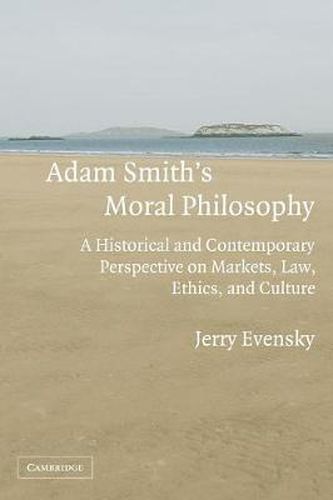Readings Newsletter
Become a Readings Member to make your shopping experience even easier.
Sign in or sign up for free!
You’re not far away from qualifying for FREE standard shipping within Australia
You’ve qualified for FREE standard shipping within Australia
The cart is loading…






Adam Smith is the best known among economists for his book, The Wealth of Nations, often viewed as the keystone of modern economic thought. For many he has become associated with a quasi-libertarian laissez-faire philosophy. Others, often heterodox economists and social philosophers, on the contrary, focus on Smith’s Theory of Moral Sentiments, and explore his moral theory. There has been a long debate about the relationship or lack thereof between these, his two great works. This work treats these dimensions of Smith’s work as elements in a seamless moral philosophical vision, demonstrating the integrated nature of these works and Smith’s other writings. This book weaves Smith into a constructive critique of modern economic analysis (engaging along the way the work of Nobel Laureates Gary Becker, Amarty Sen, Douglass North, and James Buchanan) and builds bridges between that discourse and the other social sciences.
$9.00 standard shipping within Australia
FREE standard shipping within Australia for orders over $100.00
Express & International shipping calculated at checkout
Adam Smith is the best known among economists for his book, The Wealth of Nations, often viewed as the keystone of modern economic thought. For many he has become associated with a quasi-libertarian laissez-faire philosophy. Others, often heterodox economists and social philosophers, on the contrary, focus on Smith’s Theory of Moral Sentiments, and explore his moral theory. There has been a long debate about the relationship or lack thereof between these, his two great works. This work treats these dimensions of Smith’s work as elements in a seamless moral philosophical vision, demonstrating the integrated nature of these works and Smith’s other writings. This book weaves Smith into a constructive critique of modern economic analysis (engaging along the way the work of Nobel Laureates Gary Becker, Amarty Sen, Douglass North, and James Buchanan) and builds bridges between that discourse and the other social sciences.